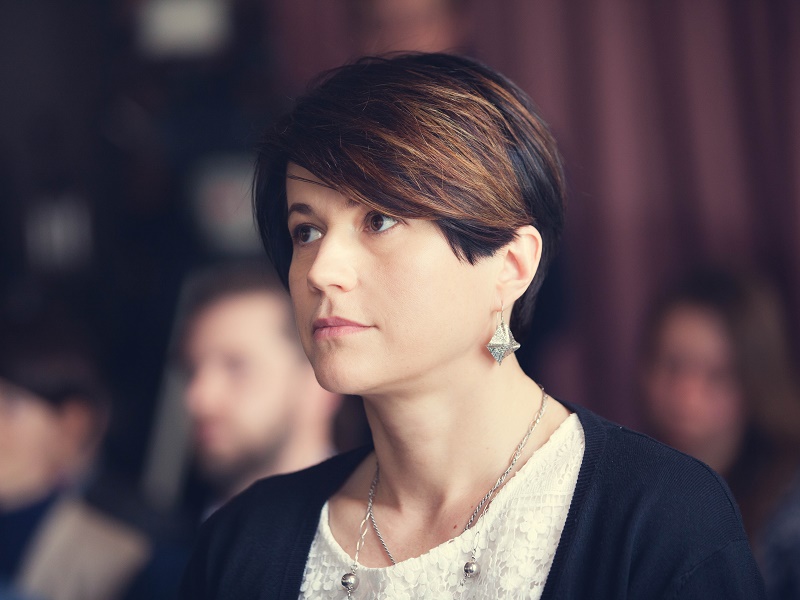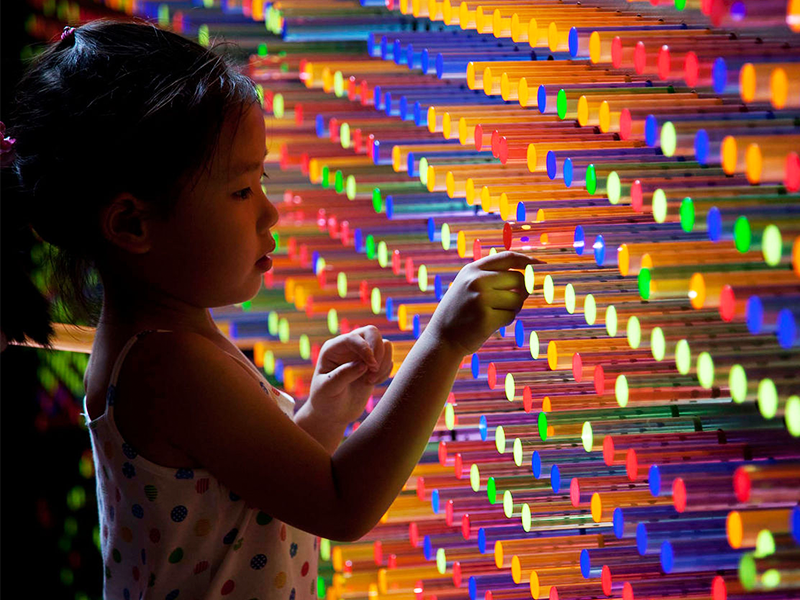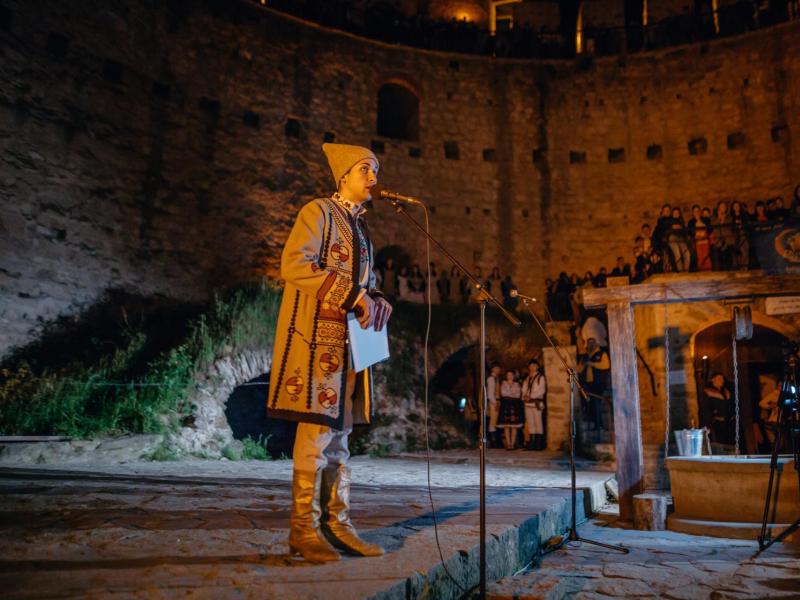
Alena Makouskaja: “Today Ideas of National Culture Are Galvanising Society, Business, Media. And That’s A Success”
Can national culture be a fashionable trend? In just a few years, Alena Makouskaja has, together with her team of enthusiasts, achieved the impossible. The “Let’s Be Belarusians!” campaign, which she heads has in a relatively short time filled many Belarusian national phenomena with contemporary content. That which seemed old, forgotten and archaic became highly relevant. “Let’s Be Belarusians!” changed fashion. How did it happen? What mechanisms were used?
What do you do if national culture loses its relevance, is not keeping up with the times, and is associated with the past?
I believe that national culture cannot lose its relevance as long as there are people who call this culture their own. Proof of that is today’s Belarusian independent culture, which lives underground. It absorbs world trends, reinterprets them, restores and modernises our traditions.
How should we understand the phrase “national culture”? What is the most accurate definition in our “digital” world?
I think that it is up to scientists to provide definitions. I prefer the definition of national culture that we use in the “Let’s Be Belarusians!” campaign. Culture for us is a system of coordinates, a set of values that are common to the national community, and that influence society’s assessment of certain events, the position of citizens, daily behaviour and way of life.
Man is not the bearer of national culture from birth. It is the result of socialisation. Throughout our lives we acquire, learn, internalise these shared values through family, teachers, literature and art, political and social experience. Cultural values shape our worldview, priorities and influence how we live.
What is the “Let’s Be Belarusians!” project about? Who is it intended for?
The “Let’s Be Belarusians!” campaign emerged in 2008. There were a number of reasons for this. Since 1990, the CSO Backaŭščyna had been actively working with the Belarusian diaspora, which allowed us to see the problems of Belarusians abroad. The reasons for the problems in the diaspora are not rooted there abroad, but rather here, at home, in Belarus. And, accordingly, they should be, first and foremost, solved here. Moreover, we had noted an increase in society’s interest in its own national cultural product. We responded to this trend. And we offered this product.
We couldn’t have managed to achieve this on our own – it’s a very serious goal. Therefore, we began to bring together a circle of like-minded people and partners, at first in our sector, namely Cultural NGOs, and later beyond it. We began to hold negotiations with state institutions, search for partners in the media and business.
Our target audience is very diverse: we work with children and youth, with opinion leaders, business, media and state agencies across Belarus.

What are the goals that the organisers of “Let’s Be Belarusians!” set themselves? What are the outcomes you are hoping to achieve?
“Let’s Be Belarusians!” is certainly considered successful if our ideas, our projects are supported by society and continue to live. And not only the ideas in themselves, but also the formats of events, work methods that we use. We are willing to share.
We see how opinion leaders from various spheres (business and state institutions for culture and sports) perceive the ideas of the campaign as “theirs” and disseminate them in their circles and to the general public. This also is an indicator of the effectiveness and the demand for our ideas.
Belarus has had a very complex history in the last hundred years: we have gone through cultural losses, through attempts to change our identity. And today, unlike many other nations, interest in our national culture and history is often transmitted not from parents to their children but the other way. Today’s youth was born in an independent Belarus. For young Belarusians it has become important to feel their identity, pride in belonging to the Belarusian nation, that is why they are turning to their history and culture. Our audience is quite broad and has no age, social or language barriers.
You have said that you are willing to share not only your ideas but also the formats of events. What formats do you use? In general, what mechanisms are effective to attract attention to national culture?
I will name some of the most successful formats of our cultural projects:
1. Literary meetings, concerts, lectures, excursions and exhibitions: This form of cultural events helps to “reach” different corners of Belarus, introduce the audience to contemporary creators.
2. Public discussions in a talk-show format: We use this format so that different people can discuss important local, social and cultural problems.
3.“Project Fairs” were conceived by us to increase people’s involvement, help them find allies and like-minded people.
4. Festivals: We initiated the Odnako! festival of Belarusian advertising and communication, which has already been held for seven years. The goal of the festival is to attract the attention of business to the Belarusian language as a good quality and effective means of communication, a source for naming and branding companies.
In addition, we have conducted a number of communication campaigns, including Belarus, Country of Dragons. The campaign resulted in the re-branding of the Minsk 2006 basketball club, which was renamed into “The Dragons Minsk”. The Let’s Be Belarusians! animated film has had more than a million views on various websites and has become a tool for learning the history of Belarus.
I really like our project Don’t be quiet in Belarusian, the online project Kray | BY, the musical project Perezagruzka. Our bags and t-shirts “Let’s Be Belarusians!” produced in national style, can now be found everywhere. Products bearing our idea – national ornament composed of pixelated squares – are now produced by the most diverse businesses, and these products are owned all around the country, they are acquired as souvenirs, as they have become trendy.
We try to make our projects creative and innovative.

What are, in your opinion, the mistakes, the result of wrong stereotypes, in the course of implementation of national cultural projects?
It’s no secret that until 2008 the visual national production was mainly politicised. National symbols were considered to belong to the opposition. We put forward a different solution, and now the national product does not force a person to declare his or her political position.
Secondly, for a long time Belarusian culture was exclusively associated with rural life, with straw hats and traditional singing. Today, this trend is changing radically. The Belarusian language “moved” from the village to the city. It is no longer associated with something abandoned or belonging to a museum. According to recent opinion polls, the majority of people now believe it is not villagers who use the Belarusian language but rather patriots and the nationalist elite.
The problem of many cultural projects today is a weak communication component. Initiators or developers invest a lot of effort and time into the product itself. And that’s all very good! But information, marketing work goes unnoticed. As a result, the product “reaches” only a limited circle of people.
For projects in the field of national culture in Belarus, the following questions remain relevant: “How to come out of the ‘underground’?”; “How to stop being a subculture?”; “How ‘to become ours’ for all Belarusians?”. To respond to these challenges, we should join the efforts of social activists and organisations, creators, the media, business and the state. To this day, it is impossible to tap into all these tools together. That is why we should look for creative approaches.
---
In 2008, the CSO World Association of Belarusians Backaŭščyna launched the “Let’s Be Belarusians!” campaign, within the framework of which many initiatives emerged aiming to support and popularise national culture, including the communication programme Culture Makes Life Better!, the We Create Culture project, within the framework of which access is open to users to an online library of texts, video, interesting experiences in the creation of cultural products, etc.




